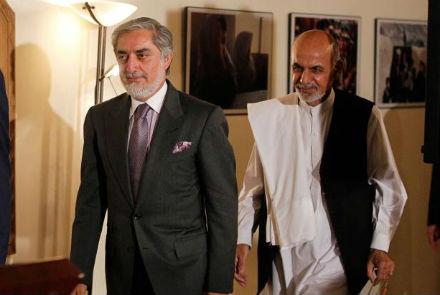1395 was a year full of tension and disagreements between the National Unity Government (NUG) leaders after CEO Abdullah Abdullah accused President Ashraf Ghani of monopolizing power.
“Political will is questioned and I totally question it, because I am aware of the issues,” Abdullah said.
Despite internal disagreements, NUG leaders were able to convince the international community at the Brussels and Warsaw summits to continue their aid to Afghanistan.
In addition to disagreements between the CEO and Ghani, a number of other figures, such as the First Vice President, General Abdul Rashid Dostum, and the president’s special representative on reforms and good governance, Ahmad Zia Massoud, also sharply criticized the political disagreements and power monopolization by Ghani.
“1395 was not a good year for NUG, because they had many failures,” said Anwar-ul-Haq Ahadi, chairman of The New National Front Party.
The political agreement based on which NUG is established, also remained unimplemented and some political figures believe that government failed to implement even a small part of the agreement.
“The political agreement that they themselves had written could be one of their basic achievements, but they failed to implement it. This year challenges and problems increased,” said Ahmad Wali Massoud, head of the Massoud Foundation.
Tensions between the CEO and Ghani continued and eventually Atta Mohammad Noor, one of the influential supporters of the CEO in the presidential election, accused Abdullah of being unable to get his party's share in government and Atta himself started negotiations with Ghani.
“Having a different point of view on elections, electronic identity cards and other issues are the reasons that delayed progress,” said Shah Hussain Murtazawi, acting director of president’s media office.
“In 1395 the situation was not as we wanted, we wanted a better situation. Steps have been taken for next year and the situation will be better,” said Jawid Faisal, deputy spokesman for the CEO.
Tension between the CEO and the president did not end and instead the U.S urged the NUG leaders to work together and stand united.
Along with other challenges, the dismissal of seven ministers by parliament, including a few key ministries, was another problem which has still is not been resolved. The dismissed ministers continue their jobs as acting ministers.

